-
 bitcoin
bitcoin $87959.907984 USD
1.34% -
 ethereum
ethereum $2920.497338 USD
3.04% -
 tether
tether $0.999775 USD
0.00% -
 xrp
xrp $2.237324 USD
8.12% -
 bnb
bnb $860.243768 USD
0.90% -
 solana
solana $138.089498 USD
5.43% -
 usd-coin
usd-coin $0.999807 USD
0.01% -
 tron
tron $0.272801 USD
-1.53% -
 dogecoin
dogecoin $0.150904 USD
2.96% -
 cardano
cardano $0.421635 USD
1.97% -
 hyperliquid
hyperliquid $32.152445 USD
2.23% -
 bitcoin-cash
bitcoin-cash $533.301069 USD
-1.94% -
 chainlink
chainlink $12.953417 USD
2.68% -
 unus-sed-leo
unus-sed-leo $9.535951 USD
0.73% -
 zcash
zcash $521.483386 USD
-2.87%
Is XRP's smart contract functionality under development?
While XRP lacks native smart contracts, Ripple prioritizes XRPL scalability and speed, exploring sidechains and partnerships for smart contract functionality, fueling ongoing community debate on its necessity.
Mar 04, 2025 at 01:37 am
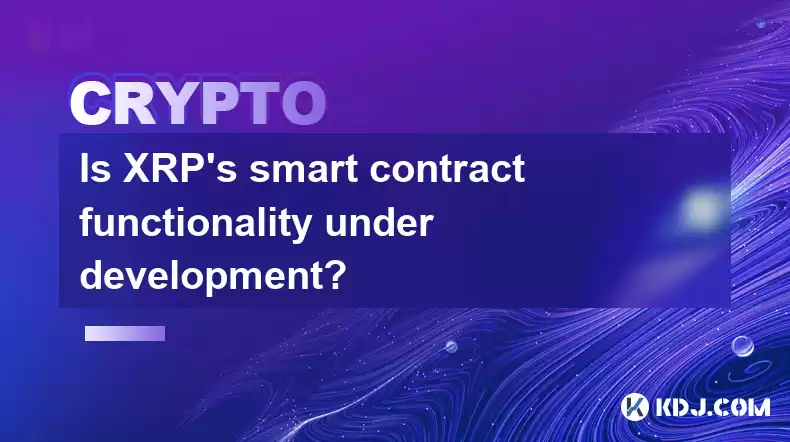
- XRP currently lacks native smart contract functionality like Ethereum's.
- Ripple is focusing on improvements to the XRP Ledger (XRPL) rather than direct smart contract implementation.
- Alternatives like sidechains and partnerships with other platforms offer smart contract capabilities for XRP users.
- The future of smart contracts on XRPL remains uncertain, with Ripple prioritizing scalability and transaction speed.
- The debate around whether XRP needs smart contracts is ongoing within the crypto community.
The question of whether XRP's smart contract functionality is under development is complex. Unlike Ethereum, which was built with smart contracts at its core, XRP's focus has been on providing a fast, low-cost, and scalable payment system. The XRP Ledger (XRPL) prioritizes efficient transactions, aiming for speed and reliability over the complex computational capabilities often associated with smart contracts. This fundamental design choice influences the current landscape surrounding smart contract functionality on the XRPL.
Ripple, the company behind XRP, hasn't publicly announced plans for a full-fledged smart contract implementation within the core XRPL. Their development efforts largely concentrate on enhancing the existing capabilities of the ledger, focusing on improvements like increased transaction throughput and enhanced security features. This strategic direction suggests that a direct integration of smart contract functionality into the core XRPL is not a current priority.
However, the absence of native smart contract support within the XRPL doesn't equate to a complete lack of smart contract capabilities for XRP users. Several alternative approaches are being explored to leverage the benefits of smart contracts while still utilizing the XRP network. These alternatives offer a pathway for developers seeking to incorporate smart contract logic into their XRP-related projects.
One such approach involves the use of sidechains. Sidechains are essentially separate blockchains that run parallel to the main XRPL, allowing developers to build applications with smart contract functionality. These sidechains can then interact with the XRPL, enabling the transfer of XRP and potentially other assets between the main ledger and the sidechain. This provides a degree of flexibility while maintaining the speed and efficiency of the core XRPL.
Furthermore, Ripple is exploring partnerships and collaborations with other blockchain platforms that offer robust smart contract functionality. By integrating with these platforms, XRP could potentially gain access to a wider range of smart contract capabilities without needing to fundamentally alter the core design of the XRPL. This strategic approach allows for leveraging external innovations while maintaining the integrity of the XRP payment system.
The ongoing debate within the cryptocurrency community centers on whether XRP truly needs native smart contract functionality. Proponents argue that smart contracts would significantly broaden the range of applications built on the XRPL, attracting more developers and users. They envision a future where decentralized finance (DeFi) applications and other sophisticated smart contract-based projects thrive on the XRP network.
Conversely, opponents contend that adding smart contract capabilities might compromise the speed and efficiency that are currently hallmarks of the XRPL. They argue that the inherent complexity of smart contracts could introduce scalability challenges and potentially increase transaction costs, undermining the core strengths of the XRP ecosystem. This perspective highlights the trade-offs involved in integrating smart contracts into a system primarily designed for fast and cheap transactions.
The technological feasibility of adding smart contracts to XRPL is not in question; rather, the decision hinges on whether the potential benefits outweigh the potential risks and drawbacks. The ongoing discussion about XRP’s future trajectory will likely continue to shape the direction of any potential smart contract development. The community’s needs and Ripple’s strategic vision will play a crucial role in determining the next steps.
Frequently Asked Questions:Q: Will XRP ever have smart contracts?A: Ripple hasn't committed to building native smart contracts into the core XRPL. However, alternative approaches like sidechains and partnerships with other platforms are offering smart contract functionality for XRP users.
Q: What are the advantages of XRP without smart contracts?A: The primary advantages are its speed, low transaction costs, and scalability. These features make it suitable for its intended purpose as a fast and efficient payment system.
Q: What are the disadvantages of XRP without smart contracts?A: The lack of native smart contracts limits the types of decentralized applications (dApps) that can be built on the XRPL, potentially hindering its growth and adoption compared to platforms with built-in smart contract functionality.
Q: How do sidechains address the lack of smart contracts in XRP?A: Sidechains provide a separate blockchain environment where smart contracts can be deployed. These sidechains can interact with the XRPL, enabling the transfer of XRP and potentially other assets between the two systems.
Q: What are the risks associated with adding smart contracts to XRP?A: Adding smart contracts could potentially introduce complexities that compromise the speed, scalability, and low transaction costs that are currently key strengths of the XRP Ledger. Security vulnerabilities are also a concern with any smart contract implementation.
Q: Is Ripple actively working on any smart contract solutions for XRP?A: While not explicitly developing native smart contracts for the core XRPL, Ripple is focusing on improvements to the ledger's existing features and exploring partnerships that indirectly provide access to smart contract capabilities. Public announcements of specific smart contract-related projects are currently lacking.
Disclaimer:info@kdj.com
The information provided is not trading advice. kdj.com does not assume any responsibility for any investments made based on the information provided in this article. Cryptocurrencies are highly volatile and it is highly recommended that you invest with caution after thorough research!
If you believe that the content used on this website infringes your copyright, please contact us immediately (info@kdj.com) and we will delete it promptly.
- Market Makers: Crypto's Silent Amplifiers of Project Risk – How to Avoid Killing Your Coin
- 2026-02-13 04:05:02
- Polymarket Token Launch Imminent Amidst Growing Market Enthusiasm and Regulatory Scrutiny
- 2026-02-13 04:00:01
- Kusama's Pivotal Livestream Unveils Revolutionary AI Product for Digital Legacy
- 2026-02-13 03:30:01
- Cardano's LayerZero Leap Ignites Interoperability While ADA Price Navigates Critical Levels
- 2026-02-13 03:55:02
- Coinbase Hits 52-Week Low Amidst Analyst Downgrade and Crypto Winter Chill
- 2026-02-13 03:50:02
- Navigating the New Era: Liquidity, License, and Legitimacy in Digital Assets
- 2026-02-13 03:55:02
Related knowledge
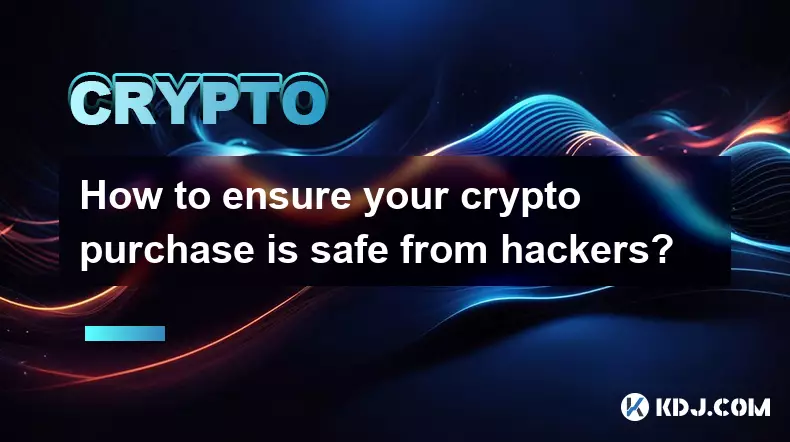
How to ensure your crypto purchase is safe from hackers?
Jan 28,2026 at 11:19pm
Secure Wallet Selection1. Choose hardware wallets for long-term holdings—devices like Ledger and Trezor isolate private keys from internet-connected s...
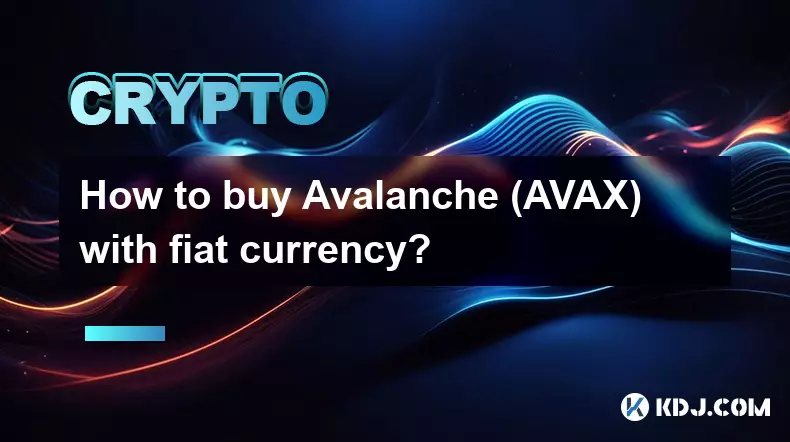
How to buy Avalanche (AVAX) with fiat currency?
Jan 29,2026 at 12:40pm
Choosing a Reliable Exchange Platform1. Identify exchanges licensed in your jurisdiction that support AVAX trading pairs with major fiat currencies li...
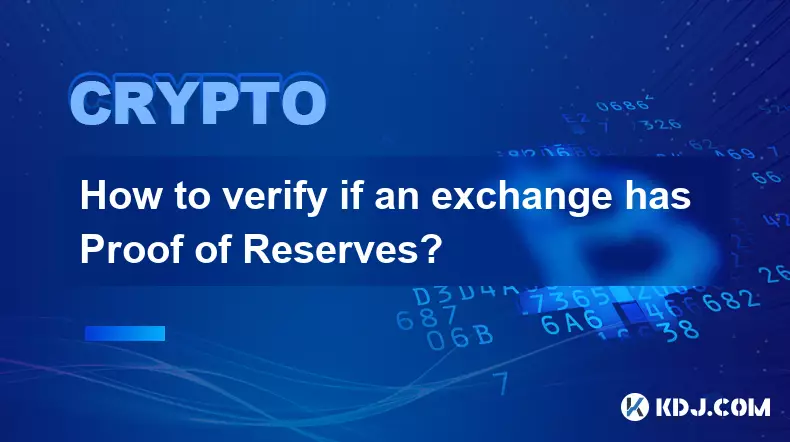
How to verify if an exchange has Proof of Reserves?
Jan 30,2026 at 06:39am
Understanding Proof of Reserves1. Proof of Reserves (PoR) is a cryptographic audit mechanism that demonstrates an exchange holds sufficient on-chain a...
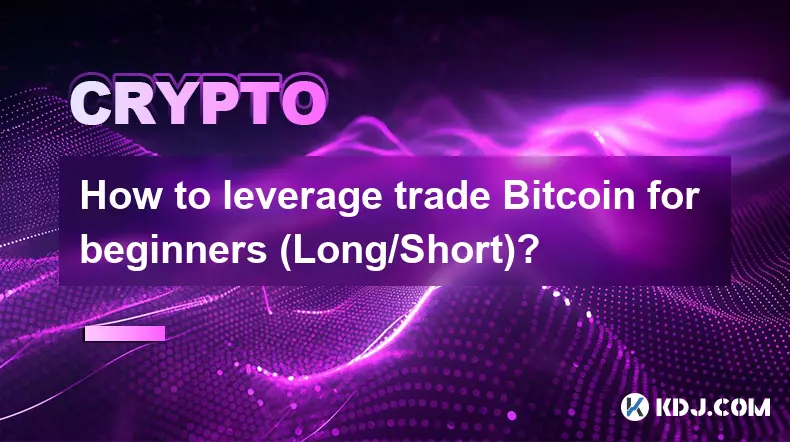
How to leverage trade Bitcoin for beginners (Long/Short)?
Jan 29,2026 at 03:19pm
Understanding Bitcoin Price Movements1. Bitcoin’s price is heavily influenced by macroeconomic indicators such as interest rate decisions, inflation d...
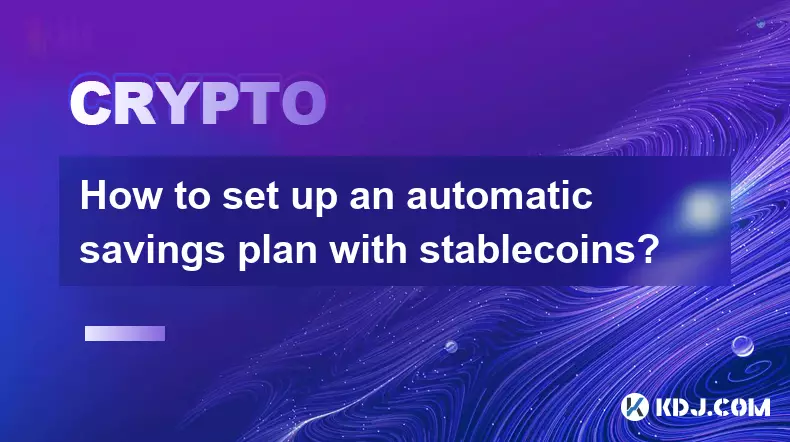
How to set up an automatic savings plan with stablecoins?
Jan 29,2026 at 06:39am
Understanding Stablecoin Savings Mechanics1. Stablecoins are digital assets pegged to fiat currencies like the US dollar, designed to minimize volatil...
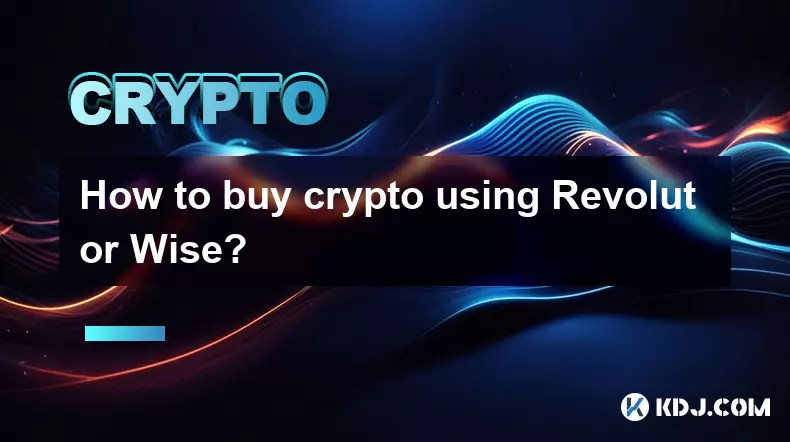
How to buy crypto using Revolut or Wise?
Jan 28,2026 at 11:00pm
Setting Up Your Revolut Account for Crypto Purchases1. Download the Revolut app and complete identity verification using government-issued ID and a se...

How to ensure your crypto purchase is safe from hackers?
Jan 28,2026 at 11:19pm
Secure Wallet Selection1. Choose hardware wallets for long-term holdings—devices like Ledger and Trezor isolate private keys from internet-connected s...

How to buy Avalanche (AVAX) with fiat currency?
Jan 29,2026 at 12:40pm
Choosing a Reliable Exchange Platform1. Identify exchanges licensed in your jurisdiction that support AVAX trading pairs with major fiat currencies li...

How to verify if an exchange has Proof of Reserves?
Jan 30,2026 at 06:39am
Understanding Proof of Reserves1. Proof of Reserves (PoR) is a cryptographic audit mechanism that demonstrates an exchange holds sufficient on-chain a...

How to leverage trade Bitcoin for beginners (Long/Short)?
Jan 29,2026 at 03:19pm
Understanding Bitcoin Price Movements1. Bitcoin’s price is heavily influenced by macroeconomic indicators such as interest rate decisions, inflation d...

How to set up an automatic savings plan with stablecoins?
Jan 29,2026 at 06:39am
Understanding Stablecoin Savings Mechanics1. Stablecoins are digital assets pegged to fiat currencies like the US dollar, designed to minimize volatil...

How to buy crypto using Revolut or Wise?
Jan 28,2026 at 11:00pm
Setting Up Your Revolut Account for Crypto Purchases1. Download the Revolut app and complete identity verification using government-issued ID and a se...
See all articles










































































